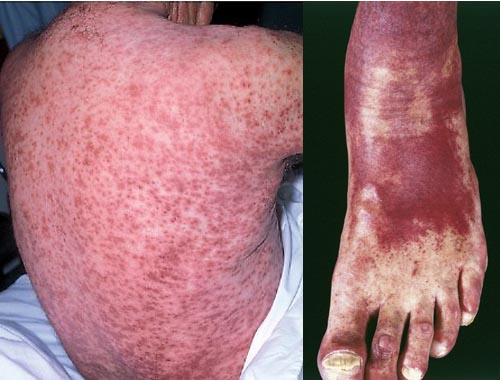Thrombotic Thrombocytopenic Purpura (TTP)
In 1924, Eli Moschowitz, MD, described a girl who presented with an abrupt onset of petechiae and pallor followed rapidly by paralysis, coma, and death. Upon pathologic examination, the small arterioles and capillaries of the patient were found to have thrombi consisting mostly of platelets. Dr. Moschowitz hypothesized a "powerful poison which had both agglutinative and hemolytic properties" as the cause of the disease. The syndrome described by Moschowitz is now known as thrombotic thrombocytopenic purpura (TTP). In its full-blown form, the disease consists of the pentad of microangiopathic hemolytic anemia, thrombocytopenic purpura, neurologic abnormalities, fever, and renal disease. A closely related disorder, hemolytic-uremic syndrome (HUS), shares many clinical characteristics of TTP but is more common in children. Renal abnormalities tend to be more severe in HUS. TTP is a potential diagnosis in any patient with anemia and thrombocytopenia: 95% of cases are fatal if left untreated. Symptoms are usually nonspecific, although half of patients have neurologic abnormalities. Examination of the peripheral smear is critical and shows evidence of microangiopathic hemolytic anemia with fragmented RBCs (schistocytes) and thrombocytopenia. An urgent hematology consultation is recommended for suspected cases. Plasma-exchange therapy is the mainstay of treatment. Renal and neurologic dysfunctions are the main complications.
